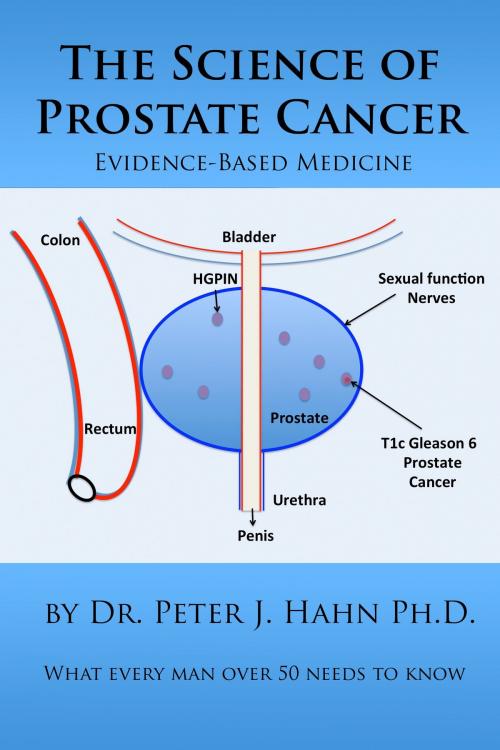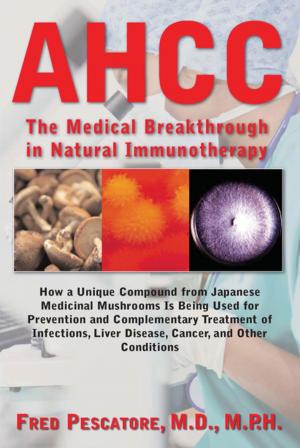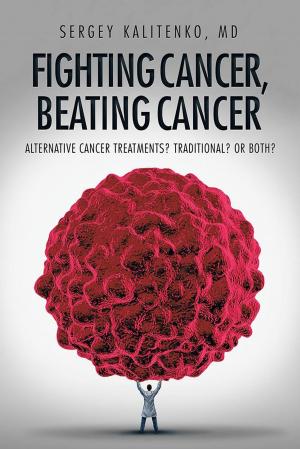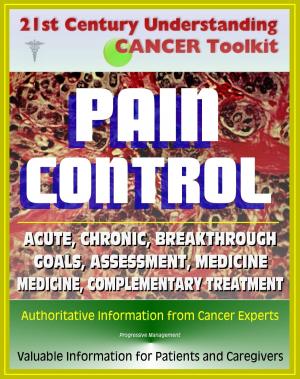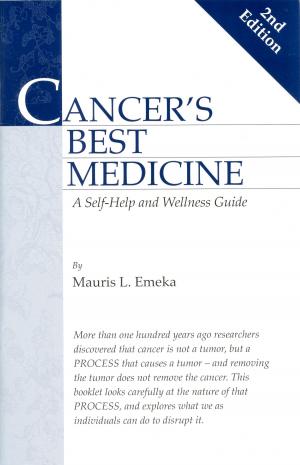The Science of Prostate Cancer
Nonfiction, Health & Well Being, Medical, Specialties, Urology, Health, Ailments & Diseases, Cancer| Author: | Peter Hahn | ISBN: | 9781310374883 |
| Publisher: | Peter Hahn | Publication: | June 6, 2014 |
| Imprint: | Smashwords Edition | Language: | English |
| Author: | Peter Hahn |
| ISBN: | 9781310374883 |
| Publisher: | Peter Hahn |
| Publication: | June 6, 2014 |
| Imprint: | Smashwords Edition |
| Language: | English |
The current medical approach to prostate cancer works reasonably well for men with advanced disease, but it fail miserably for men with very early stage low-risk prostate cancer. Many of these men are treated unnecessarily. In theory, important medical decisions are supposed to be joint decisions made by patients and their doctors, but in practice we defer to our doctors. However, with prostate cancer, there are decisions that your doctor simply can't make for you. For example, how do you weigh the high likelihood of living the rest of your life impotent and incontinent from a prostatectomy against the small chance your life will be cut short by prostate cancer if you don't get the treatment? That is a very personal decision that if you leave up to your urologist or radiation oncologist, the default decision is to treat immediately. This is frequently the wrong decision.
This book contains (hopefully) everything you need to make that decision (and many others – like should you be tested for PSA levels). Because prostate cancer is so common and because thousands of men have been followed for years we now have a pretty good idea of what the odds are, although we cant yet predict the future for any individual. Some of these results will surprise you – they did me.
I have written this book for the non-specialist. I review all the recent medical literature with the idea that men need to be able to have an informed discussion with their doctors. I also tell you what I think the results mean for most men in terms of what the risks are, although these are decisions that everyone has to make for themselves.
A recurring theme of the book is that prostate cancer should be viewed as three distinct diseases. Men diagnosed with prostate cancer need to understand which prostate cancer variant they have in order to choose the best treatment. Most prostate cancer patients will live just as long whether they are treated with surgery, radiation, or are not treated at all. Some patients, on the other hand, have the more aggressive type of disease where both surgery and radiation have been shown to save lives.
I have also included chapters describing what we know about the biology of prostate cancer, on imaging technology applied to prostate cancer, and a chapter describing the limitations of the joint doctor/patient medical decision-making.
It is my hope that this book will provide men with the information they need to assist their doctors as fully informed patients.
The current medical approach to prostate cancer works reasonably well for men with advanced disease, but it fail miserably for men with very early stage low-risk prostate cancer. Many of these men are treated unnecessarily. In theory, important medical decisions are supposed to be joint decisions made by patients and their doctors, but in practice we defer to our doctors. However, with prostate cancer, there are decisions that your doctor simply can't make for you. For example, how do you weigh the high likelihood of living the rest of your life impotent and incontinent from a prostatectomy against the small chance your life will be cut short by prostate cancer if you don't get the treatment? That is a very personal decision that if you leave up to your urologist or radiation oncologist, the default decision is to treat immediately. This is frequently the wrong decision.
This book contains (hopefully) everything you need to make that decision (and many others – like should you be tested for PSA levels). Because prostate cancer is so common and because thousands of men have been followed for years we now have a pretty good idea of what the odds are, although we cant yet predict the future for any individual. Some of these results will surprise you – they did me.
I have written this book for the non-specialist. I review all the recent medical literature with the idea that men need to be able to have an informed discussion with their doctors. I also tell you what I think the results mean for most men in terms of what the risks are, although these are decisions that everyone has to make for themselves.
A recurring theme of the book is that prostate cancer should be viewed as three distinct diseases. Men diagnosed with prostate cancer need to understand which prostate cancer variant they have in order to choose the best treatment. Most prostate cancer patients will live just as long whether they are treated with surgery, radiation, or are not treated at all. Some patients, on the other hand, have the more aggressive type of disease where both surgery and radiation have been shown to save lives.
I have also included chapters describing what we know about the biology of prostate cancer, on imaging technology applied to prostate cancer, and a chapter describing the limitations of the joint doctor/patient medical decision-making.
It is my hope that this book will provide men with the information they need to assist their doctors as fully informed patients.
